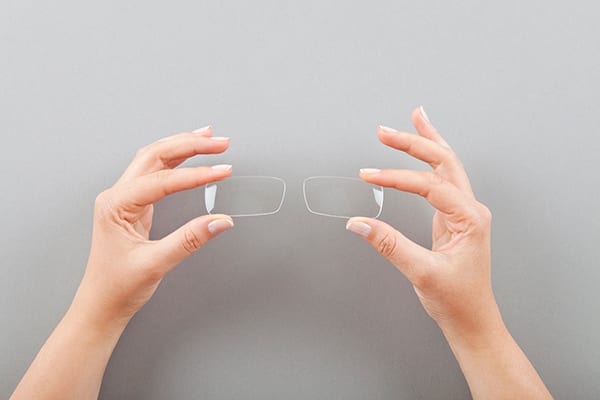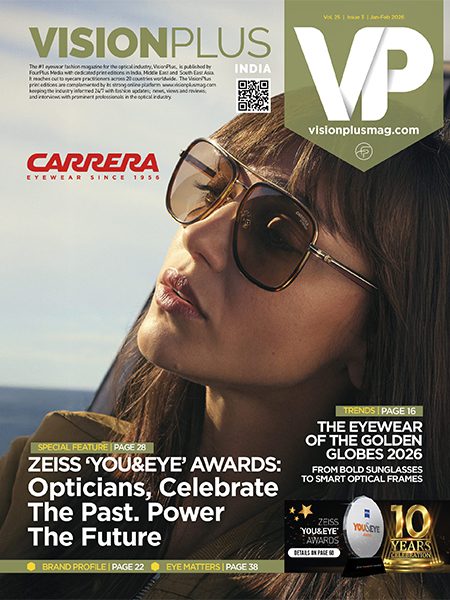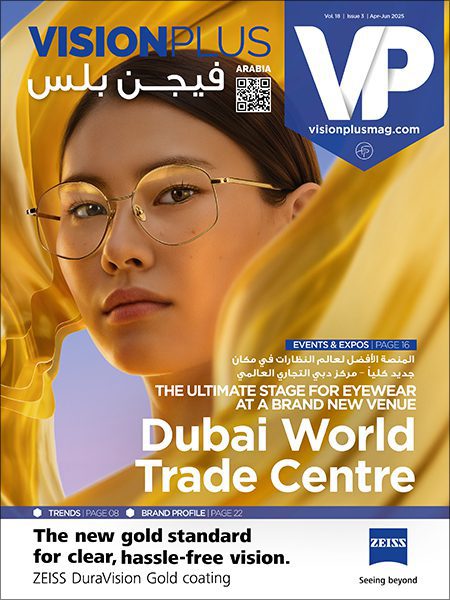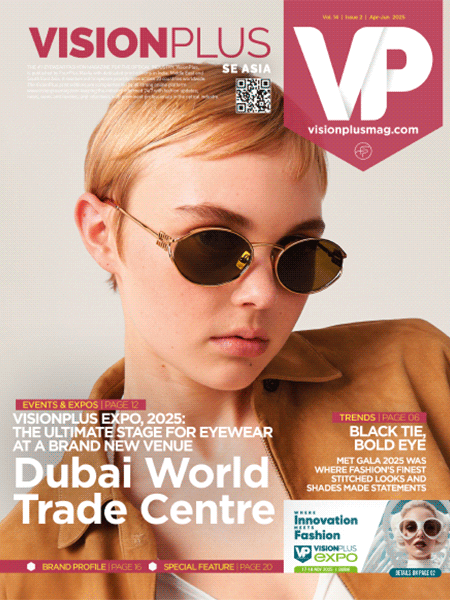
The Type Of Lenses That Every Optician Should Know About
Pratik Bhatt of Zylux Lenses updates us about the various options available in lenses. Not all opticians seem to be aware of some specialty lenses that are available and he hopes to be able to shed some light on these
As opticians, the primary objective is and will always be to provide better vision to consumers. Of course along with better vision, it is also the responsibility of an optician to provide better aesthetics.
But better aesthetics is a matter of suggestion and choice but better vision is something that an optician is able to provide as he is qualified for it based on qualifications and experience. This differentiation is paramount to the role of an optician and this can never be replaced.
Other than knowledge and experience, what opticians need to arm themselves with is information. And when I say information, it’s not just google or shared whatsapp messages that I am referring to. It’s about keeping abreast with knowledge shared by lens companies and educational institutions.
Sometimes it may seem like this information is being shared mainly as a marketing exercise but that’s just one aspect of it. I am sure that no lens company would force an optician to buy something in exchange for sharing information. As an optician, you have every right and privilege to ask for this information and every lens company will be happy to share it with you.
Finally it’s your decision, armed with this knowledge, to decide which is the best product suited for your customers. The optician has to always use his discretion based on the requirement of the consumer as each consumer is different. It should never be a ‘one size or brand fits all’ approach.
What differentiates one optician from another is his ability to recognise the requirement of a patient and dispense the product that suits that particular customer. And the list of the regular lenses is something that every optician is aware of.
- Single Vision & Multifocal Lenses
- PhotoChromic Lenses
- Hi Index Lenses
- Polarized lenses
- Blue Light Protection Lenses
These are few options which are available to every optician but the point is whether opticians are aware of the other types of lenses available to them.
Here are few options available in the market that can be presented to customers beyond just the traditional ones mentioned above
Digital Blended Bifocals
There are some customers who need not be prescribed progressive lenses just because they are presbyopic. It’s possible to make bifocal prettier by digitally blending the dividing line to make it more or less invisible.
These types of lenses are recommended for customers whose profession requires a better and improvised reading area like a writer, novelist or an architect, who spend much of their time focusing on near objects while performing their daily tasks.
Migraine Protect Lenses
The people who suffer from migraine have a very tough situation as when they do let others know of their situation or call out of work with a migraine, most of the time, it's met with doubt and disbelief. Migraine protect lenses have a rose tint and are meant to block out the UV rays that cause migraines.
Colour Blindness Lenses
Genetic color blindness is caused by an absence of, or problem in the function of, one or more of the three types of color-sensing in the retina. People who have difficulty detecting green light (deuteranomaly) or red light (protanomaly) experience an overlap between some of the light wavelengths that the brain interprets in choosing red and green colour.
Color blindness lenses are made with certain minerals to absorb and filter out some of the wavelengths between green and red that could confuse the brain. Some of the light coming through the glasses is blocked so that the remaining red and green light wavelengths don’t overlap as much. With less color overlap, the brain gets a clearer signal to help distinguish between the problem colors.
Colorblindness-correcting glasses will not change color perception for people whose deficiency is caused by a complete absence of red or green photoreceptors. And the positive effects of the glasses last only as long as they are being worn.
Scuba Lenses
Most times, when you need vision correction many of your favourite activities may take a back seat like underwater swimming or scuba diving. But you can make your customer realise that they don’t need to walk away from these pleasures of life. There’s lenses available for these activities too.
The lenses are specially designed flatter with a bigger diameter of 80mm to accomodate in the Scuba Face Shield and come with a high Impact resistant material to get away with strong under water pressure when you dive in the sea.
Sports Lenses
Every sports loving person will invest in shoes, training gear and even equipment to make you perform better. And in fact, vision is the first signal you receive to act upon for every sport. And regular lenses are not meant for sports. They are not meant to be fitting for frames or wsunglasses which wrap around or are larger in size.
Sports lenses are an untapped category and should ideally be recommended to every customer who does even the basic type of sports.
Office Lenses
Specialised Progressive design which gives predominantly large areas for the intermediate one and specifically meant for office use. This normally should not be advised for driving or watching tv from a distance or even for walking around beyond your office.
The lens is ideal for people who spend most of their time in their work space and want maximum efficiency. Most working professionals should be advised to keep this as their primary working pair and a classic progressive as their day to day activity pair.
Progressive Lenses for Driving
A special category of progressive lenses for a person or an individual who spends most of their time travelling on road via car or has their work spaces or manufacturing units far away from their living space or an avid traveller or photographers whose profession demands extensive road traveling. This allows wearers to drive without unnecessary head
movements.
The consumer, Today
The consumer is now more aware about the choices he makes and as in the new age of the internet era where information is freely available. And these days almost every customer knows or has heard of anti fatigue or blue light protection.
These lenses are single vision lenses which are optimised to relieve visual fatigue symptoms such as headaches, eye strain and blurred vision which may result from extended use of digital devices.. And this could be the beginning of the phase where customers might start educating themselves about the types of lenses.
So the time for opticians to act is now. And it’s very critical that opticians should keep themselves informed about the latest types of lenses that's available out there.







